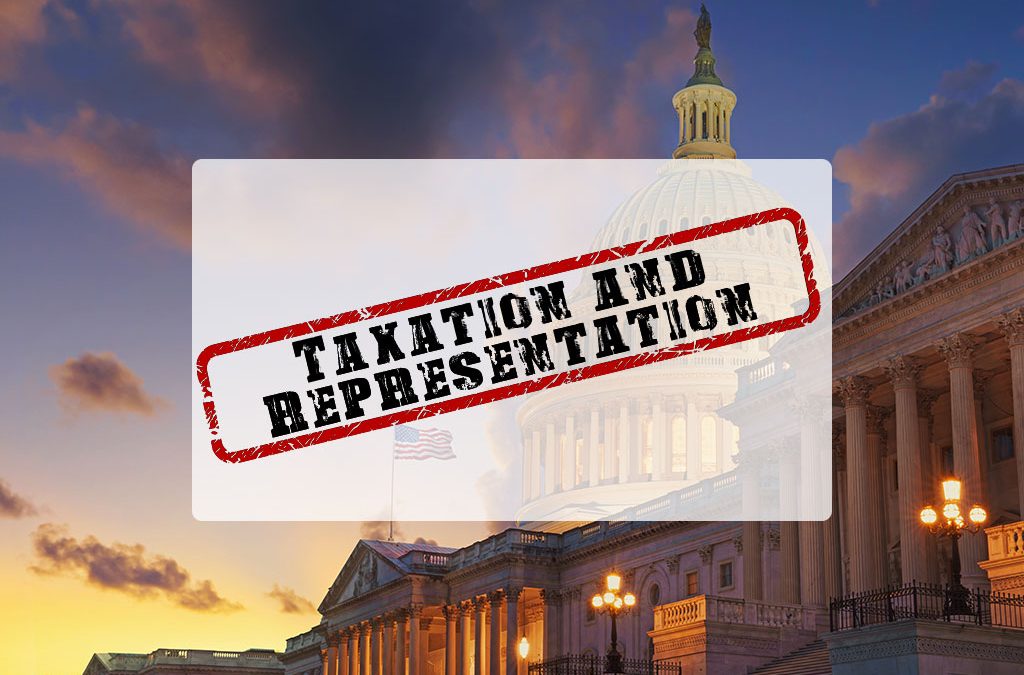Take the 2026 Family-Owned Business Survey
Internal Revenue Service (IRS) Commissioner Daniel Werfel will return to Capitol Hill on Thursday to testify before the House Ways and Means Committee. What topics will generate discussion—and criticism?
Below are Brownstein’s top five areas where members are most likely to focus during Thursday’s Ways and Means Committee hearing:
- 1099-K reporting guidelines. Commissioner Werfel was initially invited to testify before the committee in December 2023, after all Republicans on the Ways and Means Committee wrote a letter demanding his testimony on the agency’s apparent unilateral reinterpretation of the lowered 1099-K reporting threshold included in the American Rescue Plan Act (ARPA, Pub. L. 117-2). Under the ARPA provision, the reporting threshold for Form 1099-K, covering third-party settlement organization transactions, was reduced from $20,000 (and at least 200 transactions) to $600 (with no minimum number of transactions) beginning in 2022. The reduction was criticized for sowing confusion and potentially creating compliance issues, especially for taxpayers who engaged in only occasional covered transactions. In December 2022, the Internal Revenue Service (IRS) extended the effective date for the lower threshold by one year. Then, in November 2023, weeks before the delayed ARPA provision was set to go into effect, the IRS announced a further delay of the reporting threshold for calendar year 2023. More surprisingly, the agency announced that for 2024 the IRS would implement the ARPA provision at a $5,000 threshold. The delay was intended to “reduce the potential confusion” from the issuance of an estimated 44 million Forms 1099-K, but no explanation was offered for the $5,000 threshold. Ways and Means Committee Republicans responded that the delay was indicative of the agency’s lack of preparedness to implement ARPA requirements and questioned the agency’s authority for the delay as well as the 2024 threshold that is not consistent with the statute.
Treasury Department Analysis Finds Favorable Return on Investment of IRA Funding: On Feb. 6, the Department of the Treasury and the Internal Revenue Service (IRS) released an analysis providing an updated evaluation of the revenue estimates and return-on-investment (ROI) of IRS funding allocated by the Inflation Reduction Act (IRA). The analysis found that the IRA’s IRS funding, as enacted, would increase revenue by roughly $561 billion over the next 10 years, and that renewing IRA funding when it runs out would yield estimated revenues of $851 billion. Furthermore, the paper found that a $20 billion rescission of IRA’s IRS enforcement funding, which was first informally agreed to by President Biden and former House Speaker Kevin McCarthy (R-CA) to take place over two years, and then was accelerated to a one-year rescission in a topline spending deal negotiated by current House Speaker Mike Johnson (R-LA), would reduce revenues by over $100 billion. The analysis highlights the Treasury Department’s desire to continue funding the IRS, saying that IRS budget cuts in the 2010s dramatically decreased audit rates on the wealthiest individuals and corporations, and that enforcement funding has enabled the agency to hold wealthy taxpayers accountable.
Gomez to Rejoin House Ways and Means Committee: Rep. Jimmy Gomez (D-CA) rejoined the House Ways and Means Committee on Feb. 2, replacing Rep. Brian Higgins (D-NY) after his retirement. The House Democratic Caucus voted to unanimously approve Gomez rejoining the committee. In a press release, Gomez said that he would especially focus on “issues of affordable child care and housing costs ….” Gomez was previously on the committee during the 117th Congress when Democrats last controlled the House.

About Brownstein Hyatt Farber Schreck
Brownstein Hyatt Farber Schreck is a unique law firm. Walk into any of our offices and you’ll immediately recognize a different type of energy. Complacency doesn’t have a place here. Flexibility and inspiration do. Our culture and enthusiasm allow our attorneys, policy consultants and legal staff to stay ahead of our clients’ needs and provide them with the resources they require to meet their business objectives.
We hope you've enjoyed this article. While you're here, we have a small favor to ask...
As we prepare for what promises to be a pivotal year for America, we're asking you to consider becoming a member.
The need for fact-based reporting of issues important to family owned businesses and protecting a lifetime of savings has never been greater. Now more than ever, successful families and family owned businesses are under fire. That's why Family Enterprise USA is passionately working to increase the awareness of issues important to family owned businesses built on hard work, while continuing to strengthen our presence on Capitol Hill. The issues we fight for or against with Congress in Washington DC include high income tax rates, possible elimination of valuation discounts, increase in capital gains tax, enactment of a wealth tax, and the continued burden of the gift tax, estate tax and generation skipping tax.
Family Enterprise USA promotes generationally owned family business creation, growth, viability, and sustainability by advocating for family businesses and their lifetime of savings with Congress in Washington DC. Since 2007, Family Enterprise USA has represented and celebrated all sizes, professions and industries of family-owned enterprises and multi-generational employers. It is a bi-partisan 501.c3 organization. Family foundations can donate.
#incometax #CapitalGainsTax #R&DExpensing #DontPunishSuccess #GrantorTrusts #StepUpinBasis #likeKindExchanges #AcceleratedDepreciation #EstateTax #Deathtax #wealthtax #taxLegislation #CongressionalCaucus #incometaxrates #repealestatetax #AdvocatingForFamilyBusinesses #FamilyOwnedBusiness #WomenOwnedBusiness @FamilyEnterpriseUSA #FamilyEnterpriseUSA #FEUSA

